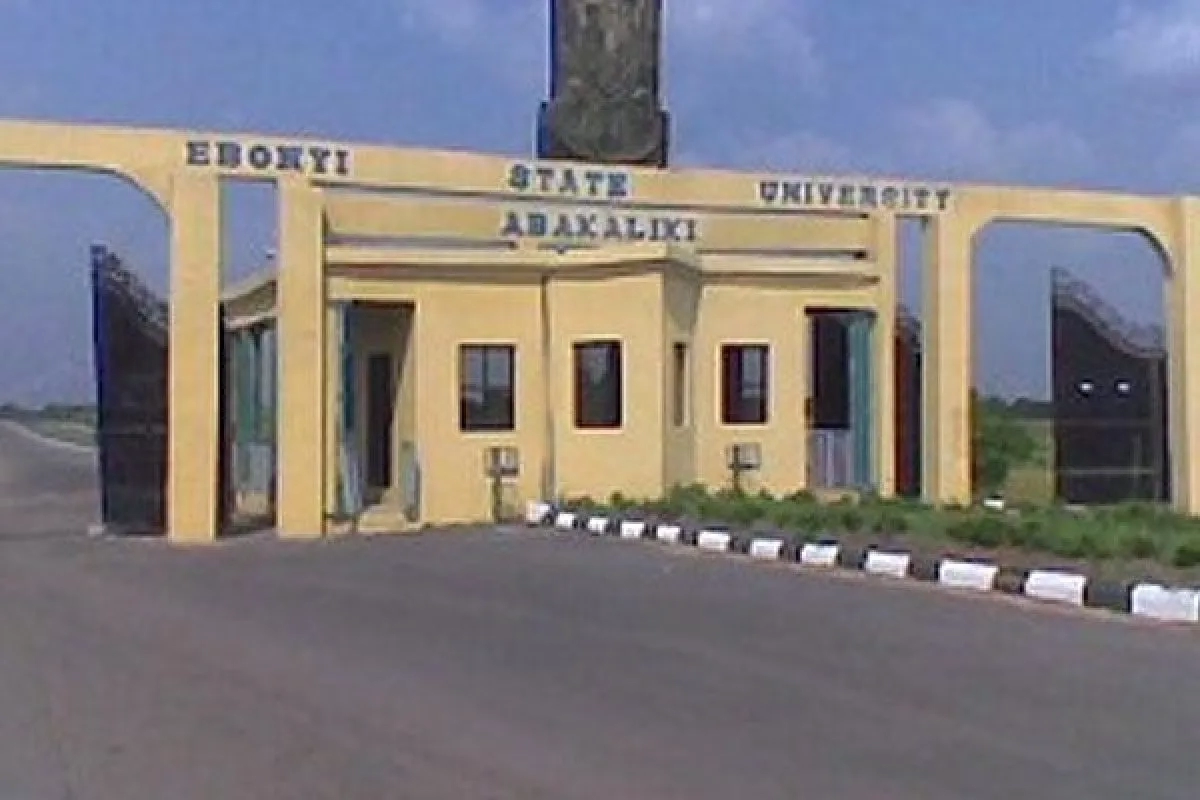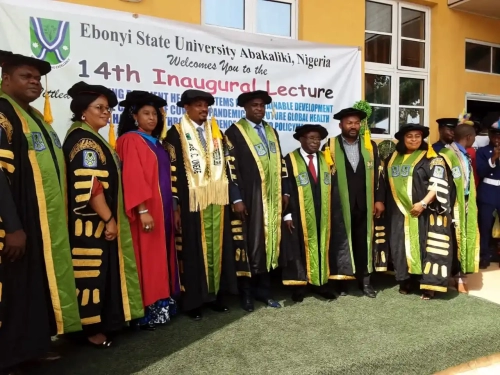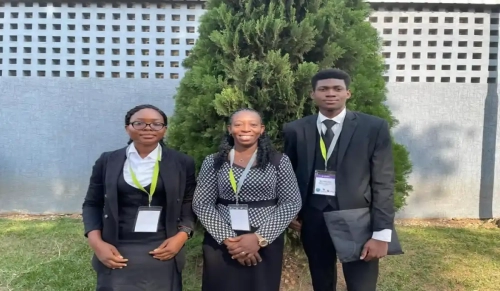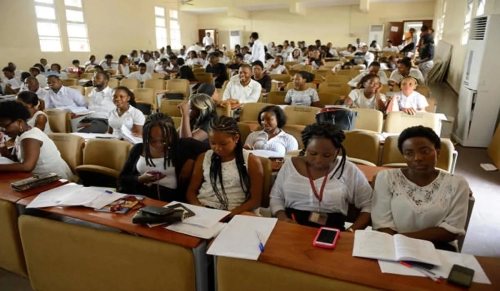Ebonyi State University (EBSU) was established in 1999 by the Ebonyi State Government to promote higher education, research, and development in the state and Nigeria. Ebonyi State University started with a resolution of the then Military Administration of Anambra State which was later upheld under Chief Jim Nwobodo civilian administration. On July 30 1980, the then Anambra State Government established the Anambra State University of Science and Technology (ASUTECH) by law no 7 of 1980 thereby establishing the first University of Science and Technology in Nigeria. The ASUTECH Edict no. 20 of 1985, put in place a four-campus structure with the Faculties of Agricultural Sciences and Veterinary Medicine located in Abakaliki. Lectures started in the Abakaliki campus of the Faculty of Agriculture in November 1987 with 55 students and 15 academic staff including students of the Department of Horticulture and Plant Protection transferred from the Awka campus of ASUTECH.
| Acronym | EBSU |
| Nickname | EBSU |
| Motto / Slogan | The Citadel of Learning |
| Founded | 1999 |
| Undergraduate Programmes | |
| Postgraduate Programmes | 20 |
| Departments | 64 |
| Location | Abakaliki, Ebonyi, Nigeria |
| Address | Abakaliki, Ebonyi State, Nigeria |
To provide a conducive atmosphere for teaching, learning, research and rapid development in order to transform the hitherto, untapped, abundant unskilled, human resources in Ebonyi state into skilled power.
To rank among the best citadels of learning in the world with excellence in learning, research and community service.

Self Development is sustained by the ability to learn and grow and EBSU provides just that. Ebonyi State University is a safe space to discover and develop yourself, socially, academically, intellectually and mentally.
At Ebonyi State University, students are provided with the best of quality education and career opportunities and exposure. By the time you're graduating, you'll know a lot about the workforce and be confident enough to apply to any job of your choice.
EBSU is a place where you can always learn, unlearn and relearn from interacting with other sound minds from different backgrounds of Nigeria. You get to experience living and learning with thousands of people with different views from you, preparing you for life after graduation.
Acceptance Fee: N50050
DIRECT ENTRY: All direct entry candidates who chose EBSU are also to be screened online. They are to access the school’s portal and other information about the online screening as stated above and request their institutions to verify their “A” level certificate in JAMB portal to enable EBSU recommend them to JAMB for admission.
Email: [email protected]
Phone : 0806 408 7963




National Universities Commission(NUC).
Professor Awoke's academic pursuits reflect a strong fou... read more
His expertise spans various facets of agricultural economics and extension, a field critical to Nigeria's development. As Vice-Chancellor of Ebonyi State University, Professor Awoke leads an institution committed to academic excellence and societal impact, bringing his extensive educational background and practical knowledge to the forefront of university administratio
His academic leadership, Industrial, teaching and research experience span over Two decades and half. Some of which were within the United Kingdom Higher Education and Financial Sectors; including Northumbria University at Newcastle upon Tyne England and Northern Rock Bank Gosforth HQ UK. He was a Senior Lecturer and Programme Leader BA (Hons) Marketing Management; and Programme Leader (Head) of Research (PhD) Programmes at Northumbria University at Newcastle-upon Tyne England UK between 2006 – 2012.
He was also the Chairman of Higher Education Foundation Certificates (HEFC) MADG Moderation Board on Marketing, Northumbria-Northeast affiliate Colleges in England from 2007 to 2011.
He also chaired many Doctoral and Professorial assessment Panels both in the UK and Nigeria.
Ike served as the Dean, Faculty of Management Sciences and Chairman of Senate Committee on Library Development, Ebonyi State University. He was also the Co-Chairman of Ebonyi State University Joint Committee on Security and Ebonyi State University Eco-friendly Initiative (EFI).
in addition, he served as Director of Academic Planning at Ebonyi State University from 2013 to 2018. Within this period, amongst other achievements, successfully restructured and consolidated the University Curriculum. He also refocused, re-engineered and systematically downsized various Faculties and Departments. He also led the University into achieving for the first time, full accreditation on 84 Undergraduate degree Programmes and 5 PG programmes.
Hence, what is today known as Ebonyi State University started with a resolution of the then Military Administration of Anambra State which was later upheld under Chief Jim Nwobodo civilian administration. On July 30 1980, the then Anambra State Government established the Anambra State University of Science and Technology (ASUTECH) by law no 7 of 1980 thereby establishing the... read more
In 1987, a Pre-Science school was established at the Abakaliki campus of ASUTECH. On August 27, 1991, Enugu State was created out of the old Anambra State so that ASUTECH campuses in Enugu and Abakaliki were inherited by Enugu State University of Science and Technology (ESUT) via Enugu State Government Edict no. 33 of 1991 and amended in 1995 with the Abakaliki campus remaining as the new ESUT Faculty of Agricultural Sciences. The College of Medicine was added a year later in 1992.
At the creation of Ebonyi State in 1996, the Abakaliki campus of the then ESUT, was upgraded to Ebonyi State University College by Edict no. 5 of Ebonyi State 1998 still affiliated to ESUT with Prof. Fidelis Ogah, former ESUT Deputy Vice-Chancellor as the first Rector. In 1997, the Faculty of Applied and Natural Sciences with 8 departments was added to the fledging University and later in 1998 when the ESUT Pre-Science Programme was relocated to Nsukka, the EBSUC Pre-Degree School commenced lectures in both Science and Arts in replacement of the former.